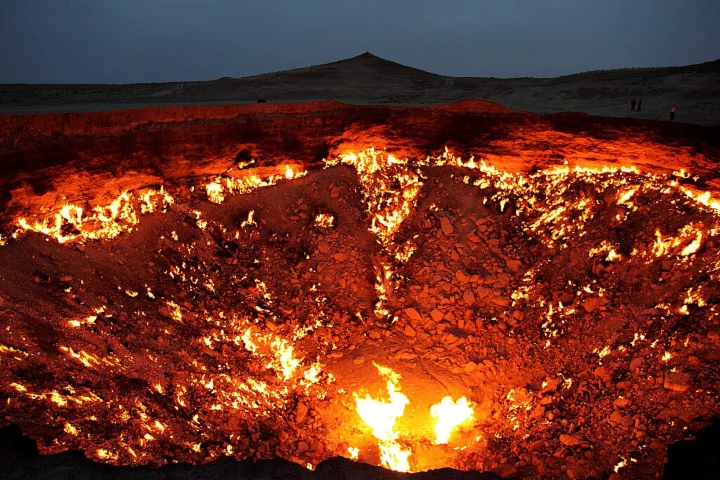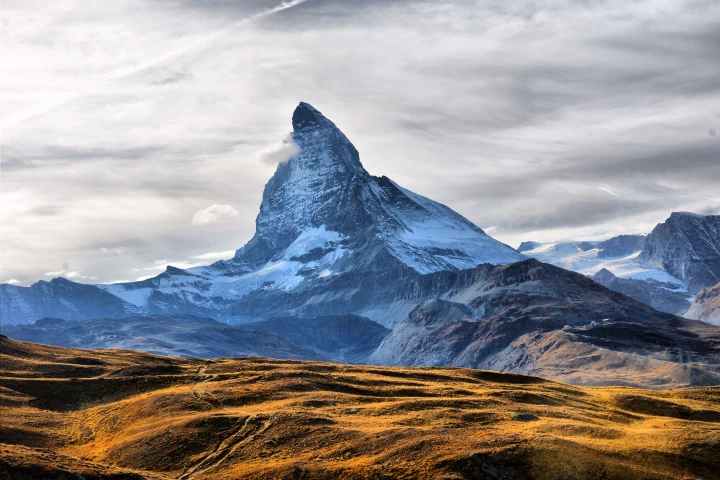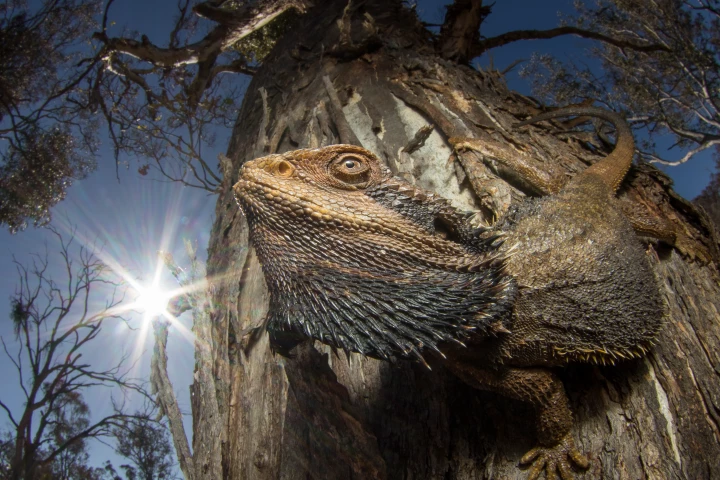Climate Crisis
-
AI tools like ChatGPT have changed our personal and professional worlds, with around 52% of American adults regularly using a large language model. But at what cost? A new study details the large environmental price we're paying for our AI assistants.
-
In 2025, around 24 million Americans are estimated to suffer from sleep apnea, and around 90% of these cases are undiagnosed. Now, a groundbreaking new study warns that the prevalence of this serious condition will soar as the planet warms.
-
The oceans are losing their light – and with it, possibly their life. A new study reveals more than 20% of the Earth's ocean, an area larger than Asia, has darkened over the last two decades.
-
No Soviet records, no logs or official drilling reports – just a 100-foot (30-m) deep, 226-foot (69-m) wide pit of relentless fire that’s burned for 50-plus years in Turkmenistan’s Karakum Desert called the Door to Hell.
-
The construction work currently underway in Saudi Arabia is unprecedented, with buildings like the Line transforming the desert landscape. Now an expert has suggested that the scale of work is so massive, it could even alter weather patterns.
-
An alarming new report reveals that right across the country, 28 US cities are sinking, showing the kind of geologic subsidence that could impact buildings and infrastructure sooner rather than later. But, scientists say it's not yet too late to fix.
-
In what may not come as much of a shock, the Doomsday Clock has inched closer to midnight and is now just 89 seconds from 12. It's the closest the hands have ever been to the symbolic 'end of times' number on the clock face in its 80 years.
-
When the Swiss and Italian governments got together to redraw the alpine border that divides the two countries last year, due to rapidly retreating glaciers, it put into stark focus a challenge that is expected to face many nations that have natural structures that mark territories.
-
Researchers have linked hotter temperatures to a rise in suicidal thoughts and behavior in young people. The new study adds to existing evidence that rising temperatures are affecting the mental health of adult men and women, too.
-
A 3,775-year-old log discovery has lent credence to the idea of burying wood to sequester the carbon it contains. Known as a wood vault, the concept helps keep CO2 out of the atmosphere while allowing the soil to be used for crops and other purposes.
-
This stunning image of a bearded dragon soaking up the rays in southern Australian has taken out the overall prize in the 2024 British Ecology Society's photography competition, an annual contest open to any nature snapper around the globe.
-
A technique originally developed to combat acid rain has the potential to pull an enormous amount of carbon dioxide out of the atmosphere – while helping to deacidify oceans, restore rivers and boost biodiversity and fish populations.
Load More











